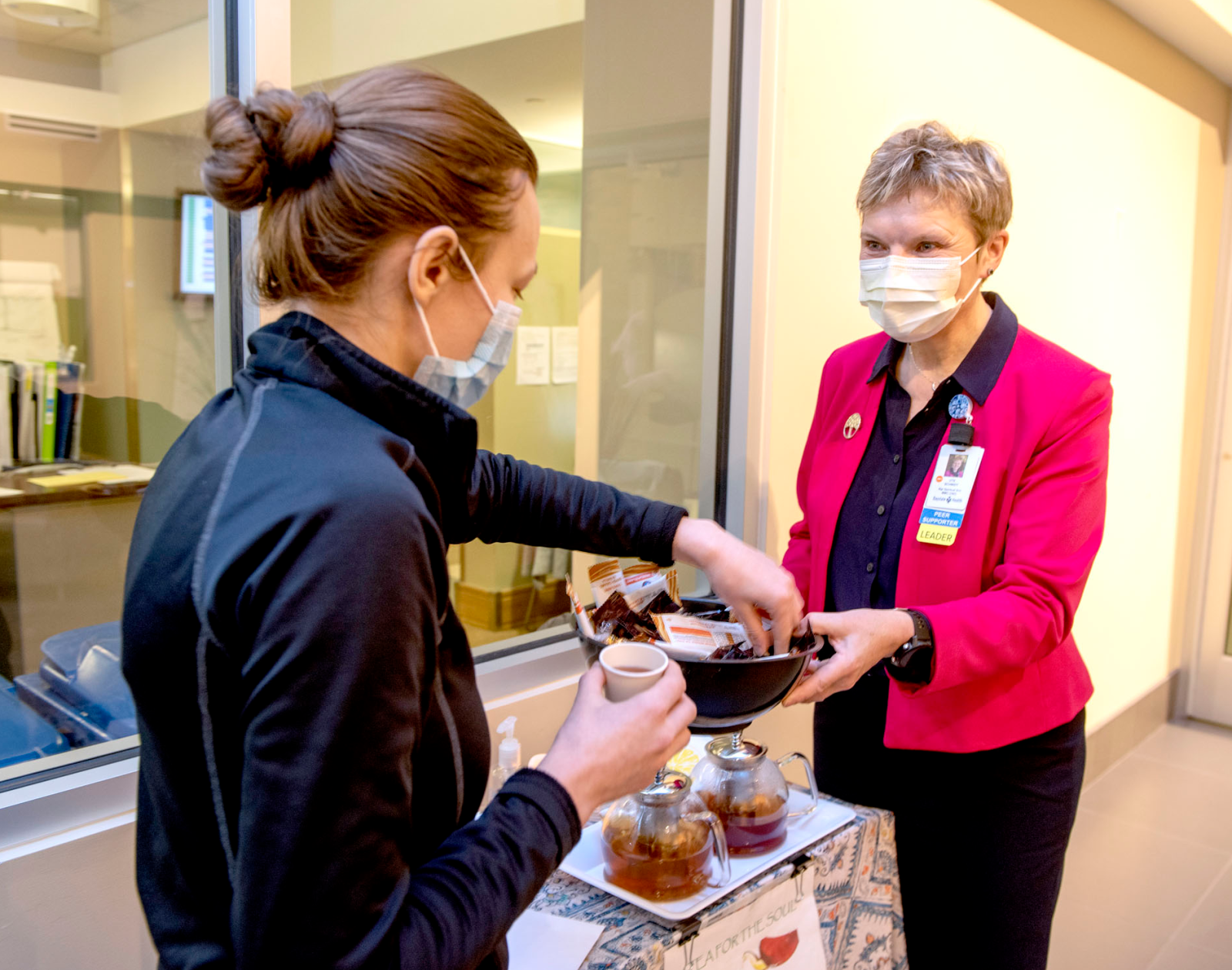“Tea for the Soul” offers staff members a break and opportunity for support
On one level, offering tea and chocolate is a simple gesture of caring that chaplains at Baystate Medical Center have extended to clinicians and staff members since 2018.
But, over the years, this deceptively simple act has become an integral part of a support program that delivers care to the workforce when and where it’s needed. And, with COVID modifications, it has become an important touchpoint in Baystate’s response to stress and burnout at the hospital during the pandemic.

Baystate Medical Center’s Reverend Ute Schmidt offers a critical care nurse tea and a snack during a recent Tea for the Soul session
In the program’s current form, Reverend Ute Schmidt, Manager of Spiritual Services and Clinical Pastoral Education, offers hot, fragrant tea and high-quality cookies and chocolates from a rolling cart in break rooms in units such as critical care, palliative care and oncology on a set schedule. Working as a pair, Schmidt and a colleague make rounds on the unit, inviting people to stop by the cart for tea and conversation.
Schmidt says she makes a point to check in with nurse managers and others with whom she’s developed trusting relationships to learn how things are going and if anyone in particular might appreciate a personal invitation. With COVID, they must limit how many people gather at the cart at any given time, a restriction that offers an opportunity for more private, in-depth healing conversations.
Tea for the Soul encompasses care for body, mind and soul and the relationship building that happens there.
Based on recent staff surveys, Schmidt reports that for many workers, Tea for the Soul is the first choice for “immediate psychological support.” She says, “I think our program is successful because people don't have to plan ahead. We come to them. We are right there. Having our team be available and accessible provides comfort and convenience.” When needed, follow up services and care are available through Baystate’s pastoral services, employee assistance program and peer support programs.
Schmidt and her colleagues welcome anyone who is working on the unit from nursing staff to residents to unit clerks and environmental service employees. Recently, she says, they were asked to provide Tea for the Soul sessions for internal medicine residents and medical students. The program is expanding largely through word of mouth, according to Schmidt. “People see what we are doing and say, ‘I want that, too.’ It’s quite old-fashioned,” she says.
Although the focus is on serious conversation, Schmidt emphasizes that intentionally choosing the beverages and food offered is another way to demonstrate that she cares. And there is symbolism in the simple act of serving someone. “Nurses, physicians, social workers — everyone, really — perceives being served a cup of tea and offered special chocolate as an expression of caring,” says Schmidt.
Baystate’s program, she says, is well-executed on many levels, which contributes to its success. Schmidt adds, “Tea for the Soul encompasses care for body, mind and soul and the relationship building that happens there. You should serve a nice cup of tea but conceptualizing it and understanding it in a bigger context, I think that’s what makes the difference.”